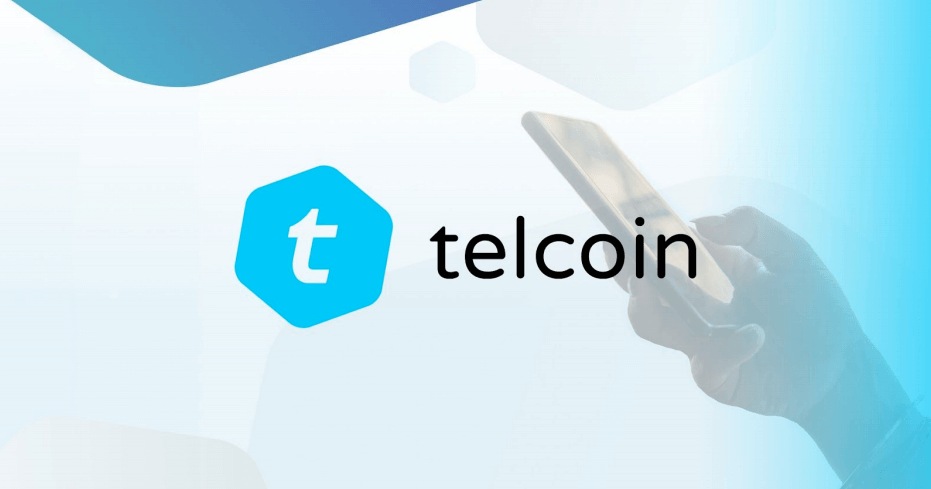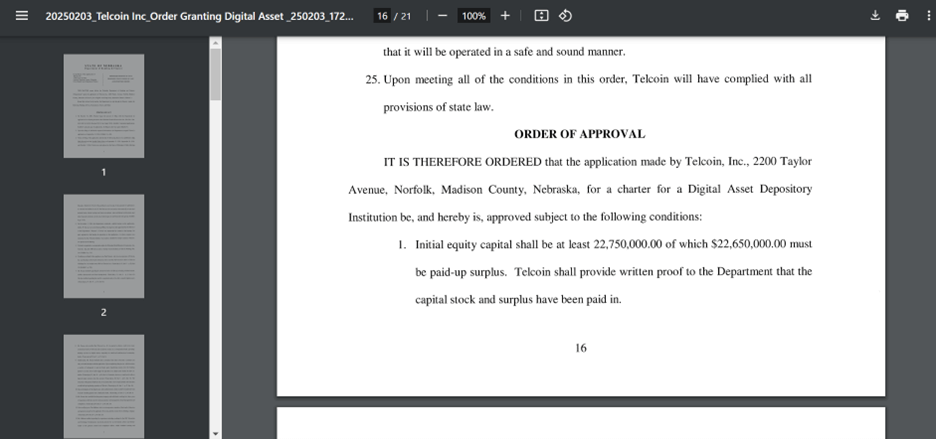Telcoin has received approval for its Digital Asset Depository Bank Charter

- Telcoin has received approval for its Digital Asset Depository Bank Charter in Nebraska
- This positions Telcoin as one of the first federally regulated digital asset depository banks in the USA
- With this charter, Telcoin can now issue stablecoins and hold deposits at a Federal Deposit Insurance Corporation.
In a landmark decision, the Nebraska Department of Banking and Finance has given the green light to Telcoin, Inc., allowing it to become one of the first federally regulated digital asset depository banks in the United States under the Nebraska Financial Innovation Act (LB 1074, 2024).

This approval, anticipated since the public hearing held in December 2024, marks a significant milestone in the integration of digital assets into the traditional banking framework.
Telcoin’s business plan
Telcoin’s application for this charter was accompanied by an extensive business plan, running into hundreds of pages with 29 appendices. This document, along with the detailed backgrounds of its directors and officers, demonstrated not only the adequacy but also the plausibility of Telcoin’s proposed operations.
The plan articulates a vision where Telcoin will issue US dollar-backed stablecoins, which it refers to as “Digital Cash” or eUSD, to facilitate its safekeeping and seamless integration into mainstream financial systems using independent node verification networks.
The conditions for Telcoin to commence operations
The Digital Asset Depository Bank Charter approval was granted based on the assurance that Telcoin will operate safely and soundly.
Notably, the testimony of witnesses during the December 5, 2024, public hearing and the thoroughness of the business plan were pivotal in getting the approval.
To operate as a federally regulated digital asset depository bank within the US, Telcoin should maintain unencumbered liquid assets in US dollars, equivalent to 100% of the value of any outstanding stablecoins it issues, ensuring financial stability and consumer protection.
It must also adhere to stringent regulatory conditions, including providing a surety bond or pledge of assets worth $1 million and securing insurance for directors’ and officers’ liability, errors and omissions, as well as IT infrastructure, amounting to $10 million.
Furthermore, all US currency received from customers must be held in FDIC-insured institutions in Nebraska, ensuring the safety of customer deposits.
Another notable aspect of Telcoin’s charter involves community engagement and education. The company has been tasked with maintaining a public file accessible to anyone, detailing its efforts in meeting community needs, including financial literacy programs for Nebraska students focusing on digital assets, budgeting, credit, and more.
Telcoin should also conspicuously display notices that digital asset deposits are not insured by the FDIC, alongside warnings about the inherent risks of holding digital assets.
Also, Telcoin must use its full legal name, “Telcoin Bank, a Digital Asset Bank,” in all its official communications and branding, ensuring clarity and recognition in the market. The charter also stipulates that Telcoin must pay a charter fee of $50,000 and cover the costs associated with the approval hearing.
Furthermore, any material changes in Telcoin’s condition before it becomes fully operational could lead to the amendment, suspension, or withdrawal of the approval.
With these conditions met, Telcoin is set to commence operations, having the legal authority to issue stablecoins and leverage independent node verification networks for payment systems.
With this approval, the Nebraska Department of Banking and Finance has laid down a pathway for digital assets to coexist with traditional banking, focusing on safety, soundness, and consumer education.
The approval sets a precedent for how digital asset companies can operate within regulatory frameworks, potentially paving the way for further innovations in the financial sector.


